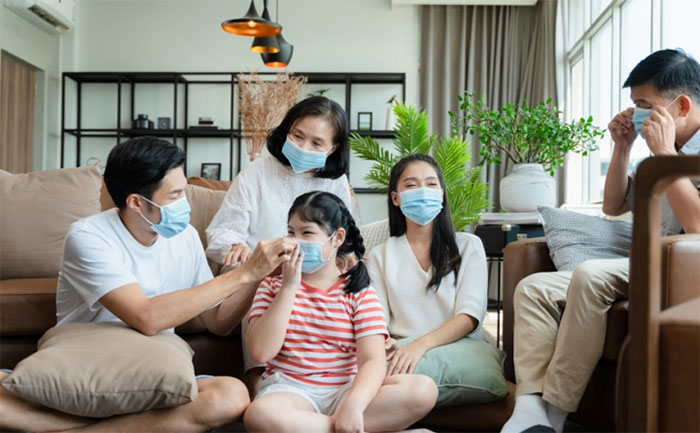Some cases of close contact, even living in the same house with a Covid-19 patient, did not result in infection.
Many people believe that living with someone infected with the novel coronavirus (nCoV) makes exposure to the virus unavoidable. However, in reality, numerous families have reported cases where individuals did not contract nCoV despite having similar levels of exposure to the virus.
According to Danny Altmann, a professor of immunology at Imperial College London, the likelihood of infection within a household where an F0 case is present “is not as high as you might think.” In fact, many studies indicate that there are people who “never contract Covid-19.”

Many cases of exposure and cohabitation with F0 did not result in virus transmission. (Illustrative image)
A study from Royal College London published in January highlighted that individuals with higher levels of T cells (a type of cell in the immune system) due to prior infection with common cold coronaviruses are less likely to contract nCoV.
“Exposure to the SARS-CoV-2 virus does not always lead to infection. We found that pre-existing T cell levels generated by the body from previous infections with other human coronaviruses, like the common cold, may protect against Covid-19 infection,” said Dr. Rhia Kundu, the study’s author.
However, Dr. Rhia warns that regardless of the circumstances, individuals should still protect themselves against Covid-19 by being fully vaccinated.
Lawrence Young, a professor of molecular oncology at the University of Warwick, noted that initial data suggests people who “never contract Covid-19” may have acquired natural immunity after previous common cold infections.
Meanwhile, Andrew Freedman, an infectious disease expert at Cardiff University, stated that whether some individuals contract Covid-19 while others do not depends on their immunity from vaccination, prior infections, or a combination of both factors.
“Vaccination reduces the risk of infection from the Omicron variant. Some individuals may contract the virus while others do not, even with significant exposure to a case,” the expert explained.
In addition to subjective factors from F1 contacts, some experts suggest that cases of cohabitation with F0 but no exposure may relate to the characteristics of the infected individual.
Specifically, some individuals may have higher viral loads in their blood after infection, releasing more virus into the surroundings, making them more contagious. Conversely, there are cases where these indicators are relatively low, reducing the risk of exposure for those living with them. Home preventive measures such as wearing masks, ensuring proper ventilation, using air filters, and limiting contact are also believed to help reduce cross-infection of nCoV within households.
nCoV is primarily transmitted through respiratory droplets. Therefore, limiting exposure to the respiratory droplets of infected individuals (such as not sharing personal items, avoiding common surfaces, and not eating or drinking together) also helps reduce the risk of infection.


















































